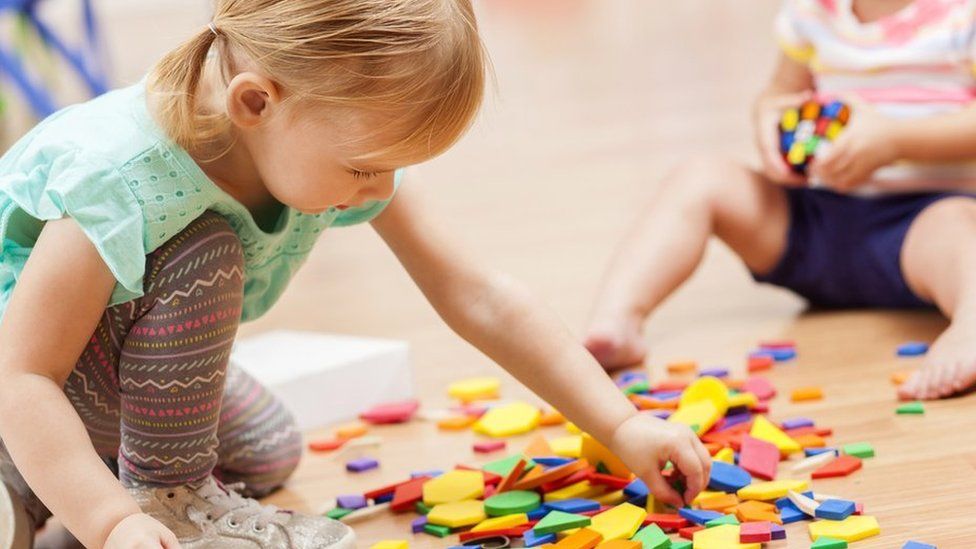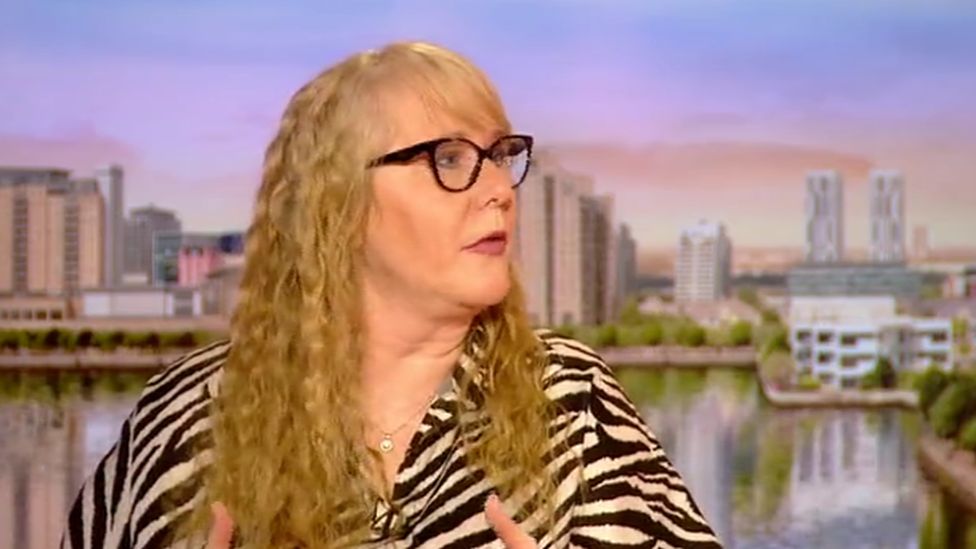 IMAGE SOURCE,GETTY IMAGES
IMAGE SOURCE,GETTY IMAGESYoung children’s development, following the pandemic, has been “particularly worrying”, the chief inspector of Ofsted has said.
In a report on the recovery of children, Amanda Spielman said there were “lingering challenges”.
The report said nurseries flagged babies with “limited vocabularies” and struggling to understand facial expressions.
The government said it was continuing to invest in education.
Ofsted’s report was based on inspections of 70 early years providers in England in January and February.
Speaking to the BBC, Ms Spielman said the report unveiled a variety of challenges for young children, including some struggling with potty-training.
She said: “We are seeing difficulties with social interaction and social confidence – children just behind where you would normally expect them to be.
“And also in physical development – crawling, walking and perhaps related to that also greater obesity.”
The report said a few early years care providers suggested face masks were having a negative impact on young children’s language and communication skills.
“Children turning two years old will have been surrounded by adults wearing masks for their whole lives and have therefore been unable to see lip movements or mouth shapes as regularly,” the Ofsted briefing said.
One nursery said children were talking in voices of cartoons they spent so much time watching.
Ms Spielman said: “I think it’s about talking and interacting directly with children, and introducing them to the kind of activities where they’re interacting with other children and adults.
She added nurseries were reporting delays accessing speech and language therapy and mental health services.
Julie Robinson, nursery owner of Eagley School House Nurseries in Bolton, told BBC Breakfast she found a difference between children who had been in nursery throughout the pandemic and those who were at home.

She said: “All they’ve seen is parents and a house, not interacting in local parks, seeing their friends, and going to parties.
“So it’s taken a long time to get these children, especially young babies and toddlers settled into nursery.”
Helen Porter, headteacher at Kings’ Forest Primary School in Bristol, told the BBC: “For very young children, not being able to have those play experiences and to explore the world around them has had a huge impact.
“It absolutely resonated with me, that the children in our nursery didn’t know what I looked like without a facemask for a long time and the impact that had on being able to read facial expressions and build those relationships.”
Headteachers also raised particular concerns about children in reception year, who they said had delayed speech and language development.
Ofsted also found the pandemic continuing to affect pupils’ knowledge, as well as having an impact on attendance.
But the inspectorate said it saw “lots of really good work” across early years and school, with most education providers using catch-up strategies to close gaps in pupils’ knowledge and skills.
James Bowen, of school leaders’ union NAHT, called on the government to invest in early year services for disadvantaged families and support services like speech and language therapy.
A Department for Education (DfE) spokesman said it had invested nearly £5bn in tutoring, additional funding for schools and training for teachers and early years practitioners.
It added: “The Nuffield Early Language Intervention Programme is also being used by the majority of schools to improve language skills of reception-age children.”
